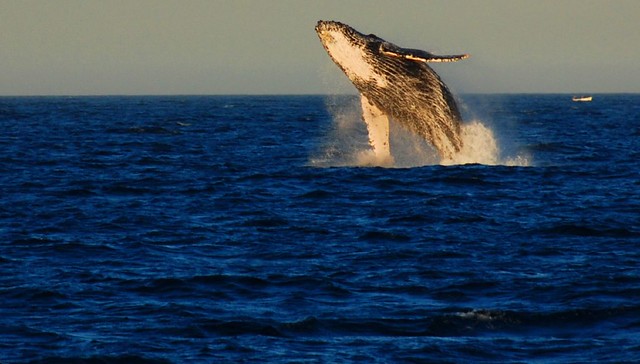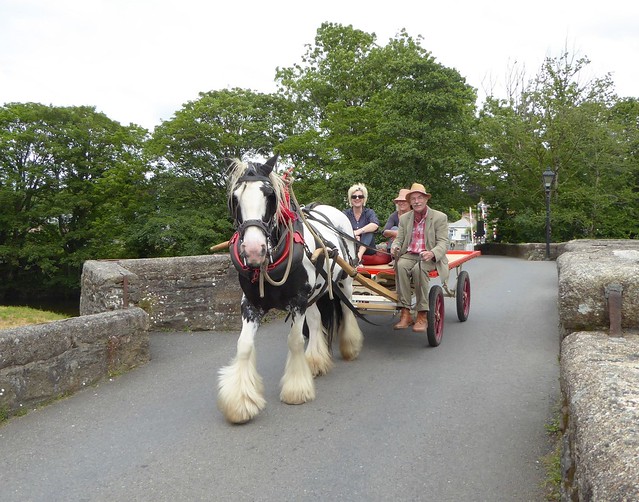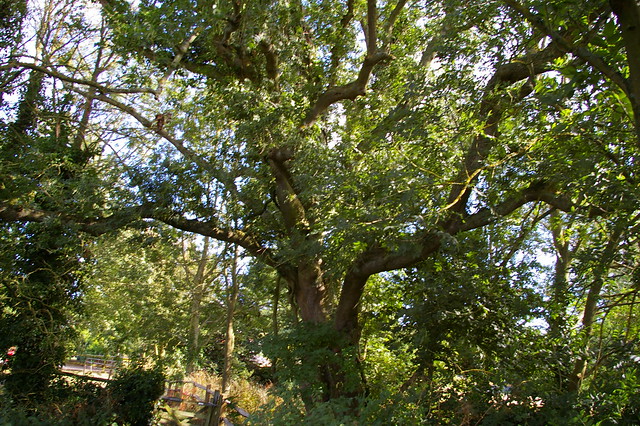Words for horse, stallion, mare, foal and related things in Celtic languages.
Note: the commonly-used words for horse in each Celtic language are: capall in Irish, each in Scottish Gaelic, cabbyl in Manx, ceffyl in Welsh, margh in Cornish, and marc’h in Breton.
Words marked with a * are reconstructions.
| Proto-Celtic | *kaballos, *kapallos, *kappilos = horse |
|---|---|
| Gaulish | *caballos = horse |
| Old Irish (Goídelc) | capall [ˈkapal͈] = horse |
| Middle Irish (Gaoidhealg) | capall, capail = horse |
| Irish (Gaeilge) | capall ˈkapˠəl̪ˠ] = horse, mare capallach = equine capaillín = pony capall maide = wooden, vaulting horse, hobby-horse |
| Scottish Gaelic (Gàidhlig) | capall [kahbəl̪ˠ] = mare, colt, horse, small horse capall-aibhne = hippopotamus capall-coille = capercaillie capall-mara = seahorse capallach [kahbəl̪ˠəx] = pertaining to or abounding in mares/colts capallan [kahbəl̪ˠan] = small horse, pony |
| Manx (Gaelg) | cabbyl = horse, mount cabbyl awin = hippopotamus cabbyl assylagh = mule |
| Proto-Brythonic | *kėfɨl = horse |
| Middle Welsh (Kymraec) | keffyl, ceffyl = horse keffylyn = little horse, nag, pony cavall, cauall = horse, steed |
| Welsh (Cymraeg) | ceffyl [ˈkɛfɨ̞l / ˈkɛfɪl] = horse, nag, hobby ceffyl yr afon = hippopotamus ceffylaf, ceffylu = to put on horseback, put one to ride the high horse, extol ceffylaidd = pertaining to horses, equine, horsy ceffylan = little horse, nag ceffyles = mare ceffylyn = little horse, nag, pony cafall = horse, steed |
| Middle Cornish (Cernewec) | cevil, kevil = horse |
| Old Breton (Brethonoc) | cefel = horse |
Etymology: uncertain – related to the Late Latin caballus (horse, nag) and Ancient Greek καβάλλης (kabállēs – nag) and maybe Persian کول (kaval – second class horse of mixed blood). Possibly ultimately from PIE *kebʰ- (worn-out horse, nag). Words from the same roots include cheval (horse) in French, cavalier in English and caballo (horse) in Spanish [source].
The Breton word kefeleg (woodcock) comes from the same Proto-Brythonic root, as does kevelek (woodcock) in Cornish and cyffylog (woodcock) in Welsh [source].
| Proto-Celtic | *markos = horse |
|---|---|
| Galatian | *μάρκαν (márkan) = horse |
| Gaulish | *markos = horse |
| Old Irish (Goídelc) | marc [mark] = horse |
| Middle Irish (Gaoidhealg) | marc = horse |
| Irish (Gaeilge) | marc [mˠaɾˠk] = horse (literary / archaic) marcach = horseman, rider, jockey; cavalryman, Cavalier marcachas = horsemanship marchaigh = to ride marcaíocht = riding, horsemanship, ride drive lift |
| Scottish Gaelic (Gàidhlig) | marc [marxk] = charger (warhorse – literary) marc-shluagh = horsemen, riders, cavalry marchach = equestrian, mounted; riding |
| Manx (Gaelg) | mark = horse mark-sleih = horseman markiagh = to ride, riding, cavalier, equestrian, horseman, jockey, rider markiaghey = riding markiaght = drive, equitation, horsemanship, (horse) riding, lift, rider |
| Proto-Brythonic | *marx = horse |
| Middle Welsh (Kymraec) | march = horse |
| Welsh (Cymraeg) | march [marχ] = horse, stallion, war-horse, steed marchaidd = pertaining to a horse, horsy, horselike, equine marchallu = horsepower marchasyn = jackass, male donkey marchdy = stable marchfeddyg = horse doctor, farrier marchfilwr = dragoon, cavalryman, cavalier, trooper marchog = horseman, rider, jockey, mounted warrior, knight |
| Old Cornish | march = horse |
| Middle Cornish (Cernewec) | march = horse |
| Cornish (Kernewek) | margh [ˈmaɾx] = horse marghek = knight, rider margh-leska = rocking horse marghnerth = horsepower marghogeth = to ride (a horse) marghti = stable |
| Old Breton (Brethonoc) | marh = horse |
| Middle Breton (Brezonec) | march = horse marcheg, marhec = horseman, rider, knight marecat = to ride (a horse) marheguez = to ride (a horse), to dominate |
| Breton (Brezhoneg) | marc’h [marx] = horse, easel marc’h-tan [marxˈtãː.n] = motorbike marc’heg [ˈmar.ɣɛk] = horseman, rider, knight marc’hegkaat [mar.ɣe.ˈkɑːt] = to ride (a horse) marc’hegañ = marc’hegezh [marˈɣeːɡɛs] = to ride (a horse), to dominate marc’hegiezh = chivalry, cavalry |
Etymology: thought to be from the Proto-Indo-European *márkos, which is also the root of the English words mare and marshal, the French word maréchal (marshal), and related words in other languages [source].
| Proto-Celtic | *ekʷos [ˈe.kʷos] = horse |
|---|---|
| Celtiberian | ekua- = horse |
| Gaulish | epos = horse |
| Primitive Irish | *ᚓᚊᚐᚄ (*eqas) [exʷah] = horse |
| Old Irish (Goídelc) | ech [ex] = horse |
| Middle Irish (Gaoidhealg) | ech = horse airech = packhorse |
| Irish (Gaeilge) | each [ax] = horse, steed (archaic) eachach = abounding in horses eachaí = horseman, jockey, equine eachaire = horse-attendant, groom each-chumhacht = horse-power eachmharcach = horseman |
| Scottish Gaelic (Gàidhlig) | each [ɛx] = horse each-aibhne = hippopotamus each-coimhlinge = racehorse eachach [ɛxəx] = pertaining to or abounding in horses, horsy eachaire [ɛxɪrʲə] = equerry eachan [ɛxan] = small horse, yarnwindle eachlach [ɛxl̪ˠəx] = horse groom, jockey |
| Manx (Gaelg) | agh [ax] = steed, riding horse aghee = equine aghlagh, aghragh = equestrian eagh = horse, racehorse, riding horse, steed eagh marrey = sea horse eagh-veg = hobbyhorse |
| Early Brittonic | *epālos = foal |
| Proto-Brythonic | *eb [ɛːb] = horse *ebọl [ɛˈbɔːl] = foal |
| Old Welsh | eb = horse |
| Middle Welsh (Kymraec) | ep, ebawl = colt, foal ebawluarch, ebolfarch, ebawlfarch = colt, young horse ebolyauc, eboliauc = in foal, capable of bearing a foal |
| Welsh (Cymraeg) | ebol [ˈɛbɔl / ˈeːbɔl] = colt, foal, sucker eboles [ɛˈbɔlɛs] = filly, foal ebolaidd = coltish, frisky, playful, wanton ebolfarch = colt, young horse cyfeb = mare in foal ebolig = coltish eboliog = in foal, capable of bearing a foal |
| Middle Cornish (Cernewec) | ebel = foal, colt |
| Cornish (Kernewek) | ebel = horse |
| Old Breton (Brethonoc) | ebol = horse |
| Middle Breton (Brezonec) | ebeul = foal, filly |
| Breton (Brezhoneg) | ebeul [ˈe.bøl] = foal ebeulan, ebeuliañ = to foal ebeulez = filly keneb = mare in foal |
Etymology: from the Proto-Indo-European *h₁éḱwos, which is also the root of the Latin word for horse, equus, and the English word equine, and related words in English and other languages [source]. The horse goddess, Epona, may be related as well.
| Proto-Celtic | *uɸorēdos = horse |
|---|---|
| Gaulish | *werēdos = horse |
| Proto-Brythonic | *gworuɨð = horse |
| Middle Welsh (Kymraec) | goruytaur, goruit, gorwyd , gorŵydd = steed, horse gorwyddfarch = (war-)horse, steed |
| Welsh (Cymraeg) | gorwydd = steed, horse gorwyddfarch = (war-)horse, steed |
Etymology: from the Proto-Celtic *uɸo- (under) and *rēdo- (to ride; riding, chariot), from Proto-Indo-European *(H)reydʰ- (to ride). Words from the same Celtic roots include palfrey (a small horse with a smooth, ambling gait), Pferd (horse) in German, and vereda (path, lane) in Spanish [source].
| Proto-Celtic | *(φ?)lārek- = mare |
|---|---|
| Old Irish (Goídelc) | láir = mare |
| Middle Irish (Gaoidhealg) | láir, lair = mare |
| Irish (Gaeilge) | láír [l̪ˠɑːɾʲ] = mare An Láír Bhán = the Milky Way láír bhán = hobby-horse láíreog = little mare, young mare, filly, well-built girl, woman |
| Scottish Gaelic (Gàidhlig) | làir [l̪ˠaːrʲ] = mare |
| Manx (Gaelg) | laair = mare laaireen = small mare |
Etymology: possibly from PIE *pōlH- (animal young), which is also the root of pony and foal in English, pollo (chicken) in Spanish, and poule (hen) in French [source].
| Proto-Celtic | *kanxstikā = mare |
|---|---|
| Middle Welsh (Kymraec) | cassec, kassec = mare |
| Welsh (Cymraeg) | caseg [ˈkasɛg] = mare |
| Old Cornish | casec, cassec, casac = mare |
| Middle Cornish (Cernewec) | casek = mare |
| Cornish (Kernewek) | kasek = mare |
| Middle Breton (Brezonec) | casec, casecq = mare |
| Breton (Brezhoneg) | kazeg [ˈkɑː.zek] = mare |
Etymology: from Proto-Indo-European *ḱonḱ- (horse) [source]. Words from the same root possibly include henchman in English, hengst (stallion) in Dutch, and häst (horse, knight) in Swedish [source].
| Proto-Celtic | *stirrākos = small animal, chick |
|---|---|
| Old Irish (Goídelc) | serrach = colt, faol |
| Middle Irish (Gaoidhealg) | serrach = colt, faol |
| Irish (Gaeilge) | searrach = colt, faol searrachúil = foal-like, lively, flighty |
| Scottish Gaelic (Gàidhlig) | searrach [ʃɛr̪ˠəx] = colt, faol, filly searrachan [ʃɛr̪ˠəxan] = little foal searrach-ruadh = buzzard |
| Manx (Gaelg) | sharragh = faol sharraghoil = faol-like |
Etymology: from PIE *stirp- (progeny). Words from the same root possibly include estirpe (lingeage) in Spanish, and sterpo (dry twig or branch, brushwood) in Italian [source].
Sources: Wiktionary, Am Faclair Beag, Online Manx Dictionary, Teanglann.ie, eDIL – Electronic Dictionary of the Irish Language, In Dúil Bélrai English – Old Irish glossary, Geiriadur Prifysgol Cymru, Gerlyver Kernewek, Dictionaire Favereau, TermOfis, English – ProtoCeltic WordList (PDF), Etymological Dictionary Of Proto Celtic












